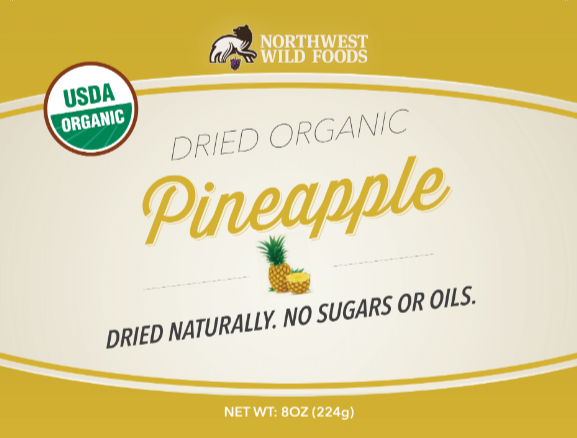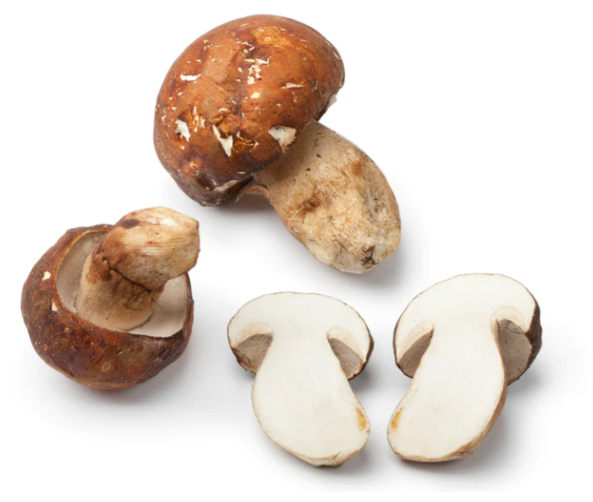Fresh Frozen Organic Rhubarb
Fresh Frozen Organic Rhubarb
Our fresh frozen organic rhubarb is second to none for convenience, taste, and nutrition. Our rhubarb is locally grown and harvested on a family farm in Skagit Valley, Washington. As soon as the rhubarb is harvested, it is cleaned, hand cut into one inch slices, and then flash frozen. This extends its shelf life for your benefit and enjoyment.
What is rhubarb?
Rhubarb is an unusual vegetable because it is distinctive for its sour taste and thick stalks, which are usually cooked with sugar. The stalks range in color from red to pink to pale green and have a consistency that is similar to celery. The color of rhubarb stalks is influenced by the level of anthocyanin present. These antioxidants are also one of the key protective nutrients in rhubarb.
The leaf stalks are actually the only parts of the plant consumed, most commonly in jams, sauces, pies and other baked dishes, smoothies, even cocktails, and rhubarb wine. As rhubarb pies are a popular dessert, this vegetable is sometimes called the “pie plant.”
Since naturally sour rhubarb is usually served sweetened, it is often mistaken for a fruit. In fact, the taste of rhubarb is somewhat similar to that of green apples, which is to say that it is tart.
It wasn’t until the 18th century, when sugar became cheap and readily available, that rhubarb became a popular food. Before that, it was mainly used medicinally. In fact, its dried roots have been utilized in traditional Chinese medicine for thousands of years
as a remedy for gut disorders, liver and kidney disease, inflammation, and more.
More recently, it was uncovered that rhubarb can also alleviate symptoms of menopause.
One of the main reasons why people cultivate and eat rhubarb is its astounding nutritional value. It is packed with minerals, vitamins, antioxidants, and other nutrients that make it ideal for keeping our bodies healthy.
Nutritional Benefits
Low in Calories: Rhubarb is one of the lowest calorie vegetables around, with only 21 calories per 100 grams (almost one-half cup). This means that organic rhubarb is great for weight loss and an excellent addition to any meal
High in Fiber: It's a good source of dietary fiber, which is essential for digestive health. Fiber helps regulate bowel movements, prevent constipation, and may aid in weight management by promoting feelings of fullness.
Rich in Vitamins: Rhubarb is particularly high in vitamins A, C, and K.
Vitamin A is essential for maintaining healthy vision, the immune system, and aiding in proper fetal development; it also helps fight free radicals that cause skin damage and premature aging.
Vitamin C is an antioxidant that supports immune function and skin health; and
Vitamin K plays an important role in bone metabolism, helping to maintain bone density and reduce the risk of osteoporosis. It also helps maintain brain health, and it is an essential vitamin for proper blood clotting.
Mineral Content: Rhubarb contains minerals such as calcium, potassium, magnesium, and manganese. Calcium is essential for bone health, potassium helps regulate blood pressure, magnesium is essential for protein synthesis, neuro transmission and heart health; and manganese is involved in metabolism and bone development.
Antioxidants: Rhubarb is a rich source of antioxidants. These antioxidants have been linked to reduced inflammation and a lower risk of chronic diseases like heart disease and certain cancers.
Hydration: Rhubarb has a high water content, which can contribute to overall hydration and help maintain electrolyte balance in the body.
Overall, incorporating rhubarb into your diet can provide a wide range of nutritional benefits, by boosting your needed intake of essential vitamins, minerals and antioxidants.
Now, let’s see the health benefits that these nutrients provide, some of which may surprise you!
Health Benefits
- Protects Heart Health
Rhubarb is an excellent source of fiber, which helps to lower cholesterol. The lower cholesterol levels attained from consuming rhubarb will help unclog arteries and lower blood pressure levels, reducing the risk for heart disease and heart attack. The vitamin K in rhubarb also helps to prevent the calcification of blood vessels. The antioxidants in rhubarb are also anti-inflammatory, which helps protect heart health.
- Protects Brain Health
According to a study published in the Brain Research Bulletin journal, rhubarb glucoside compound rhaponticin, an anti-inflammatory compound, protects the body against Alzheimer’s. Furthermore, in vitro results show the positive effect of rhaponticin in preventing the harmful effects of amyloid-beta that are crucial in the formation of senile plaques.
Rhubarb is also rich in vitamin K, which limits damage to our brain cells. This protective property of rhubarb makes it a potential fighter against neurodegenerative diseases like Alzheimer’s, Dementia, and Parkinson’s. The fact that it can fight against oxidative stress means that consuming rhubarb can help preserve our ability to memorize and retain information.
- Anti-cancer Properties
The antioxidants in rhubarb help fight free radicals in the body, which may reduce the risk of developing certain types of cancer.
In addition, Physcion, the compound which gives rhubarb stems its distinct red color, has been tested as an anti-cancer remedy. In one animal study, physcion was found to have killed 50% of leukemia cells within two days. A modified form of physcion was also found to be successful in reducing tumor growth among mice that have been injected with human cancer cells. While these results are indeed promising, more human studies are needed for corroboration.
- Improve Bone Health
Rhubarb is a good source of vitamin K that is associated with stimulating bone growth and repair. Combined with the potentially rich amount of calcium and other minerals found in rhubarb, this vegetable is a major player in bone protection, and the prevention of osteoporosis.
5. May Aid in Digestion
The fiber in rhubarb helps keep things moving through the digestive tract, preventing problems such as constipation. By easing constipation and other digestive issues, rhubarb may help prevent a wide range of more serious gastrointestinal disorders, which include bloating and cramping. In one recent study, it was found that rhubarb also had the ability to protect the intestinal wall with an increased secretion of gastrointestinal hormones.
6. May Aid in Weight Loss
Since rhubarb is so low in calories, it is often recommended for people who are struggling to lose weight but still want to maintain their health. Additionally, the fiber helps you feel full faster which may further reduce total caloric intake and promote weight loss. A study published in the Journal of Zhejiang University of Traditional Chinese Medicine showed that compounds in rhubarb might help gastric emptying which can also promote weight loss.
- May Improve Skin Care
Rhubarb being rich in antioxidant vitamin A, may help fight off free radicals and delay the signs of aging including wrinkles and fine lines. It also acts as an anti-inflammatory, anti-fungal, and antibacterial agent that may help prevent skin infections and acne. In fact, rhubarb has long been used in folk medicine as a topical cure for skin infections. All in all, rhubarb will help you maintain youthful and glowing skin.
Enjoying your Fresh Frozen Organic Rhubarb
You can enjoy rhubarb in a number of different ways including:
- Baking it into a pie
- Making rhubarb ice cream
- Blending it into a sauce for fish, meat or poultry
- Roasting rhubarb with a drizzle of honey and tossing it in a salad
- Blended into a smoothie
- Rhubarb jam
The Takeaway
Rhubarb is a nutritional superfood deserving of the title. It is packed with antioxidants, vitamins, and minerals that can help the body fight off diseases like cancer or Alzheimer’s. It has been proven (for centuries) to help with minor conditions like digestive issues, and can be used as a topical treatment for skin conditions.
======================================================
Resources Used for NWWF Blog # 20: Fresh Frozen Organic Rhubarb
https://www.healthline.com/nutrition/rhubarb
https://www.organicfacts.net/health-benefits/fruit/rhubarb.html
https://supplements.selfdecode.com/blog/rhubarb/
https://www.webmd.com/diet/health-benefits-rhubarb
https://edenboost.com/7-amazing-benefits-of-organic-rhubarb
https://eminenceorganicfarm.com/skin-care-experts-love-rhubarb/


